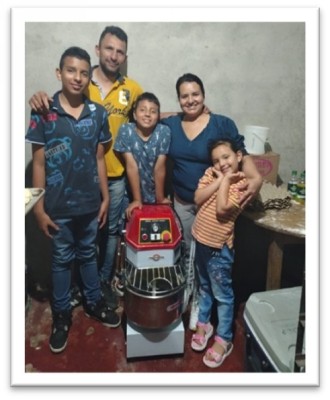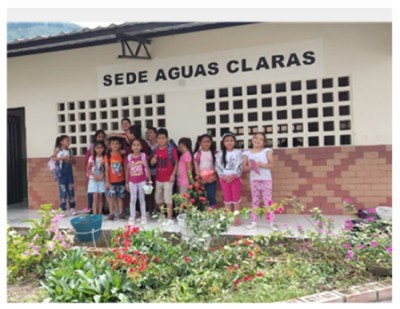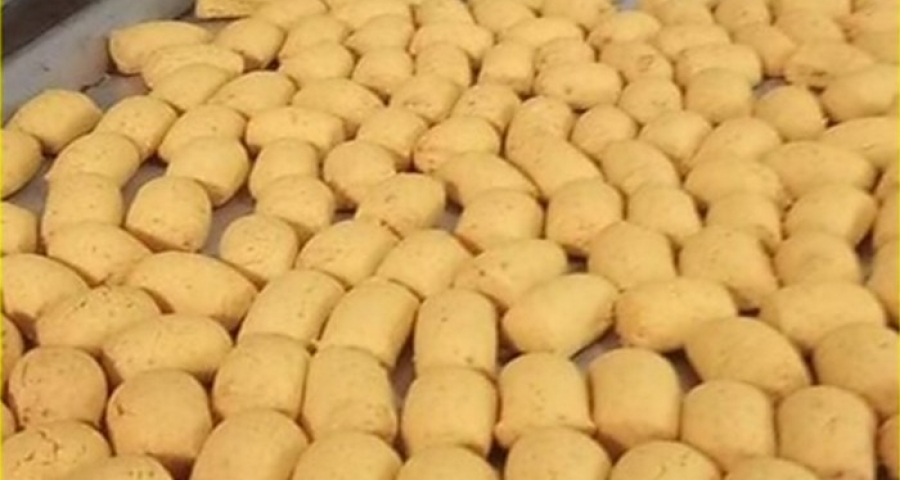#OPLAStories – In a small mountain village in southern Colombia, a family finds a way to improve their economic situation by serving the community and creating communion
by Tainã Santana from the OPLA Team
Gloria and her family live in Aguas Claras, a small mountain village in the south of Colombia, and are part of an association of peasant families called ‘Acedeco Padevi’. They have three children, the last of whom was born during the Covid pandemic, and to support themselves they needed extra income because their salaries were not enough to make ends meet. Living in the mountains, they realised that a bakery was missing in their village, and they set out to make bread at home.
 Over time, the ‘bakery’ grew and, little by little, sales increased to the point that Gloria could no longer cope with the demand for bread so much that, even with her husband's help in kneading, she could not produce the necessary quantity. Gloria tells us:
Over time, the ‘bakery’ grew and, little by little, sales increased to the point that Gloria could no longer cope with the demand for bread so much that, even with her husband's help in kneading, she could not produce the necessary quantity. Gloria tells us:
‘My dream was to be able to buy a kneading machine to improve the production of my homemade bread. It was an impossible dream because the income I was getting from selling bread was barely enough to cover my family's needs.’
And this is where the EoC's help stepped in - supplemented by a family loan repaid with a few hours of work at dawn at the association: Gloria and her husband bought the kneading machine and sales have grown a lot. ‘Now it is in less time and with less sacrifice that I can produce the bread our community needs on a daily basis and our business is growing by the day. We dream of giving better and better service to our neighbourhood, and of creating a well-structured bakery. I have also experienced that we are family because it really moves me to think that people who do not know us have pooled their assets to help us improve our living conditions and job opportunities.’
 But it didn't end there: Gloria and her husband wondered what they could do with the time they saved thanks to the kneading machine, possibly making a concrete contribution to their community. They realised that in the rural school where their children study: ‘no one was doing anything, waiting for the Mayor's Office to do it, and in the meantime, the children were in a physical environment of total neglect, with leaks, broken glass, wobbly windows, dirty walls, etc.’
But it didn't end there: Gloria and her husband wondered what they could do with the time they saved thanks to the kneading machine, possibly making a concrete contribution to their community. They realised that in the rural school where their children study: ‘no one was doing anything, waiting for the Mayor's Office to do it, and in the meantime, the children were in a physical environment of total neglect, with leaks, broken glass, wobbly windows, dirty walls, etc.’
At that point, they decided to form a committee and, evoking fellowship from other members of the community, they carried out a fundraising activity. Then, with the help of parents, teachers and children, they repainted and fixed up the classrooms and the playground, planted new plants and transformed it into a ‘more dignified and welcoming place for all’. They thus found that:
‘the communion of goods generates communion around us: in the company where we work, in the family, in the bakery, seeing the needs around us at school, or in the chapel yet to be finished’.
And that is how communion takes shape, even in the small villages in the Colombian mountains.
And you, what are you waiting for? Do you see similar situations around you, of people who can put their talents at the service of the community while becoming protagonists of their own development? Write to us at This email address is being protected from spambots. You need JavaScript enabled to view it. and become part of this story too.








